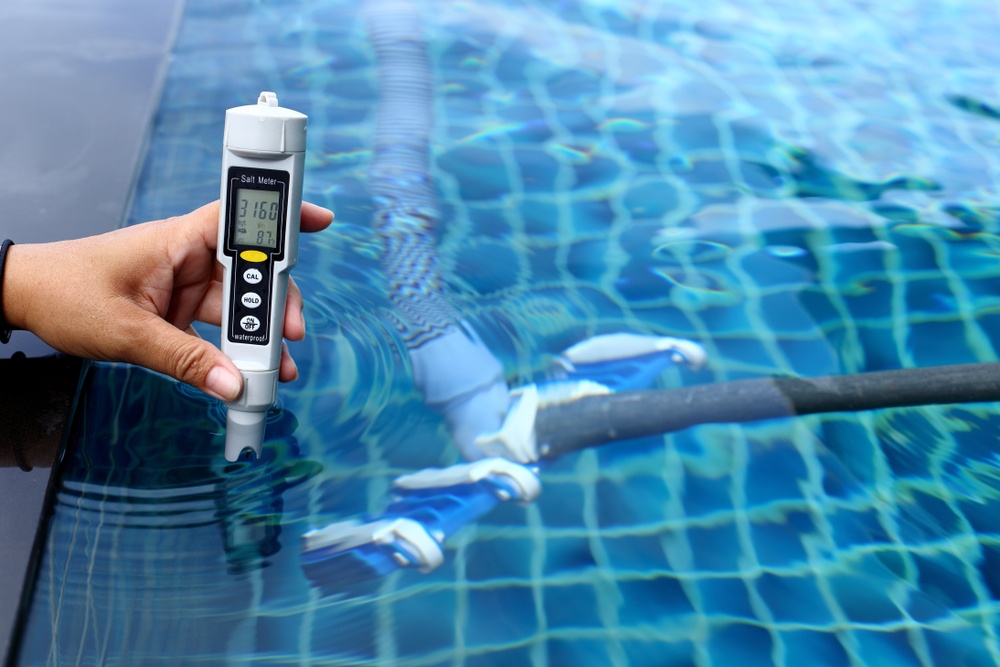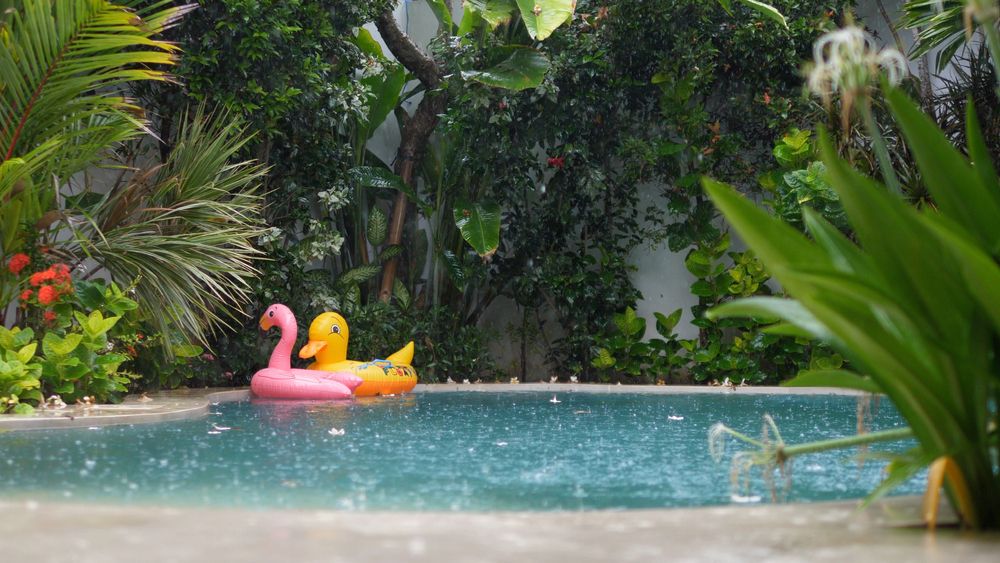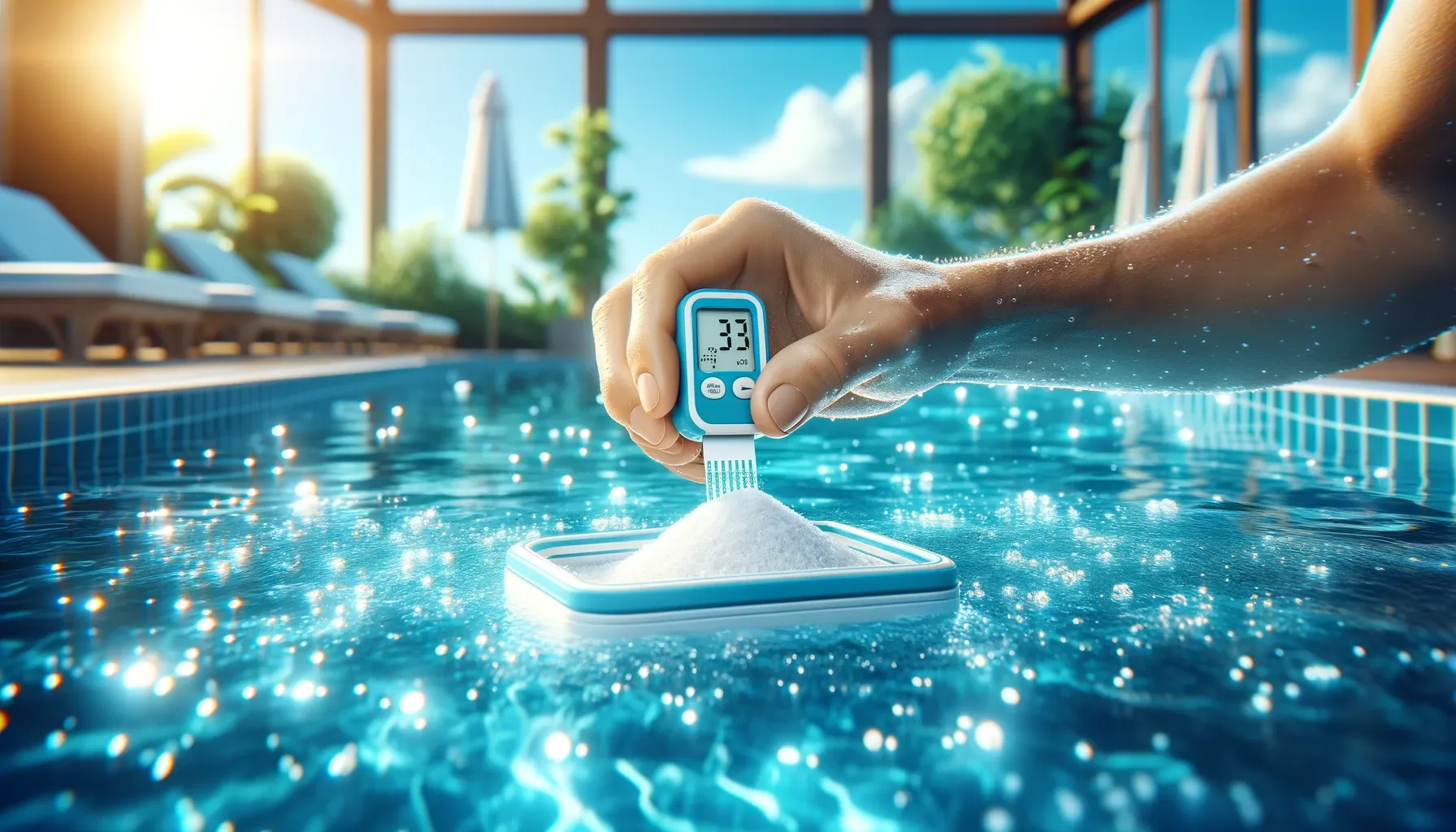
Impact of Rain on Your Pool Water

Rain might be unpredictable, but our approach to maintaining pool water health shouldn’t be. At PoolForce, we believe that every pool owner should be equipped with the knowledge to maintain their pool’s pristine condition, even when Mother Nature decides to pour down. Rain, while refreshing, carries with it certain challenges for pool water. Let’s demystify the impact of rain and offer you some hands-on solutions.
Latest


How Do You Properly Clean a Fiberglass Pool in 2024?

How Do You Know If Your Pool Needs Salt?
Categories
Rain’s Natural Composition and Its Effect on Pool Water
When rain kisses the earth, it isn’t just water; it brings along a mix of elements, influenced by our environment. Let’s dive deeper into what makes rain unique and how it interacts with your pool water.
The Acidic Undertone of Rain On Pool Water
Our environment, especially in urban areas, releases a cocktail of gases, notably Nitrogen Oxides (NOx) and Sulfur Oxides (SOx). When these combine with atmospheric moisture, the result is what we often term “acid rain”. This rain has a lower pH, meaning it’s more on the acidic side than pure water. When it meets your pool, it can nudge the pool’s pH out of balance.
Beyond the Raindrops: The Perils of Runoff
It’s not just the raindrops falling from the sky that you need to be mindful of. The water that cascades over your garden, slides off your patio or runs across your deck brings along its own set of challenges. This runoff water can carry:
- Dirt and Debris: From fallen leaves to soil particles.
- Chemicals: Residues from fertilizers or other garden treatments.
- Changes in Water Chemistry: Disturbances in pH, Calcium Hardness, Total Dissolved Solids (TDS), and Alkalinity levels.
This concoction can lead to a water quality that might be harsh on the pool’s surfaces and metal components.
Actionable Steps
Regular Water Check-ups
It’s akin to us getting regular health check-ups. Your pool’s water needs frequent testing, particularly during periods of consistent rain. By staying on top of the water’s chemistry, you’re in a better position to address any changes promptly.
Handling Overflowing Water
Pools aren’t designed to hold an infinite amount of water. When heavy rain occurs, it’s crucial to manage the rising pool water levels. If you’re equipped with a Diatomaceous (D.E.) or Sand Filter, you can shift it from vacuum to waste mode, ensuring you get rid of the surplus without burdening your filter.
Outlet Valves: A Potential Savior
For those who face regular rain-related challenges and are equipped with cartridge filters, an outlet valve can be a game-changer. It allows you to drain excess water effectively, ensuring optimal skimming. However, a gentle reminder: always ensure the water level stays above the skimmer to prevent potential equipment issues.
Partner with Pool Experts
Sometimes, the best course of action is to collaborate with those who live and breathe pools. If you’re feeling overwhelmed post a heavy downpour, a local pool expert can guide you in restoring your pool’s balance and sparkle.
While rain and pools might seem like adversaries, with the right knowledge and tools, they can coexist harmoniously. Regular maintenance, paired with timely interventions, ensures that your pool remains a haven of relaxation and fun, rain or shine. PoolForce is always here to support you on this journey.
Latest

How to Maintain the Recommended Salt level in your Pool in 2024

How Do You Properly Clean a Fiberglass Pool in 2024?

How Do You Know If Your Pool Needs Salt?
Categories
YOU'RE NOT IN THIS ALONE
We are with you every splash of the way
Need a pool fix or looking for an upgrade? We’re just one click away to help with all your pool needs.

